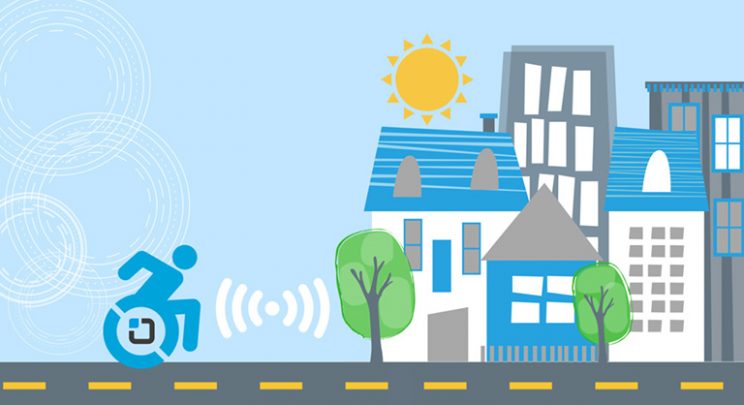Tools by Tecla Enabling an Accessible Digital Revolution
Research article  Open access |
Available online on: 24 October, 2019 |
Last update: 28 October, 2021
Open access |
Available online on: 24 October, 2019 |
Last update: 28 October, 2021
 As part of its strategic roadmap, Mada works to enable equal access to cultural life via digital technology for people with disabilities and the elderly. This is primarily done through empowering strategic partners and key stakeholders to support people with functional limitations to fulfill their creative, artistic and intellectual potential independently.
As part of its strategic roadmap, Mada works to enable equal access to cultural life via digital technology for people with disabilities and the elderly. This is primarily done through empowering strategic partners and key stakeholders to support people with functional limitations to fulfill their creative, artistic and intellectual potential independently.
As communication technology became more pervasive in modern society, so has our reliance on digital tools for carrying out the most essential day to day activities. From getting around to managing workloads and lifelong learning, we use telephones and tablets to access dynamic content in a way that is blurring the lines between the virtual and physical worlds. Hailing a taxi no longer entails waving down a car from the sidewalk or even making a telephone call to an operator, it is something that can be done through a simple few touches on any ride-sharing app. Mada encourages this type of dynamism and independence as it empowers people to become more active participants in society, breaking down socio-economic and physical barriers along the way.
For people with disabilities, the importance of this digital revolution is even more compounded. As a group of people that has been traditionally marginalized from work, education, mobility, social and cultural participation and all types of fitness and entertainment, they are in even greater need for digital tools that enable them to partake in this new world, where digital tools are able to provide greater social mobility and integration.
This type of transformative change is precisely what tools developed by companies such as Tecla can bring about. The Assistive Technology manufacturer has developed a range of products to support people that have difficulty using smartphones, tablets, and computers using traditional methods. Through the use of switches, people with physical disabilities can freely interact with all iOS and Android devices.
A switch is an input device, such as a button, that can be programmed to carry out a functional normally done through traditional input methods such as touch or typing. The size and sensitivity of switches can range from a large surface that can be triggered with a person’s head or something very small and sensitive that is controlled by the movement of one’s eyebrows. Switches are powerful tools that enable people with limited use of their hands to make use of digital tools without any obstacles at all.
Tecla’s switch system is mobile meaning that it can be used from a person’s wheelchair or if they are sitting on the sofa at home. Unlike most tools that are fixed to a specific physical configuration, Tecla systems are designed to be portable and used by the same person in multiple settings. In addition to the switches themselves, a Tecla system offers the entire system including the controller, joysticks, mounts which can be purchased either individually or as part of an entire kit.
What makes Tecla even more unique as a company is that it is a Certified B corporation – part of a growing worldwide network of businesses that meet a set of standards related to their social and environmental performance, public transparency, and legal accountability. This means that they are committed to balancing profit and purpose. The result is that Tecla solutions are considerably less expensive than other, more mainstream, adaptive switch solutions.
Another benefit that the company enjoys is its location within an incubation center in one of Canada’s leading biomedical incubation centers. Through a partnership between Ryerson University and St. Michael’s Hospital, the Biomedical Zone allows technology startups to validate their need-based solutions directly with clinicians, business experts, innovative thinkers, and most importantly, people with disabilities themselves. The result is a user-driven technology that is in touch with the real-life needs of its most important stakeholders – people with disabilities themselves.
Take Carolyn, for example, a former circus performer that was injured, resulting in her physical disability. Through Tecla, she can do her online banking, order taxis, and work in the magazine industry independently. There is also Christopher who uses the Tecla platform to control not one, but two Macs to edit videos, run his creative business, communicate with people all over the world, play games and browse the Internet. Prior to Tecla, Christopher was limited to using only one computer at a time, because he had to have his switch hard-wired. Now, he can come and go from the computer and change computers independently.
No matter what the use is, Tecla is an example of an innovative technology that has the potential to change people’s lives.
